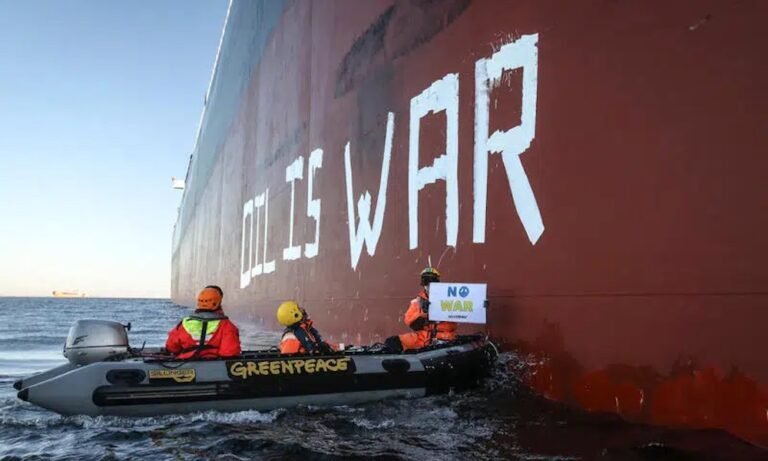Aframax Tanker Arrested in India Amid Sanctions Dispute
A shadow aframax tanker sold for scrap earlier this year has been arrested in India following a failed transaction and claims by the buyer that the vessel was sanctioned and misrepresented at the time of sale.
The Gujarat High Court has ordered the arrest of the 2004-built Conico Atlas – the Comoros-flagged vessel, long associated with the shadow fleet and sanctioned crude movements.
The ship that was refused entry at India’s Vadinar port earlier this year and subsequently sold for demolition arrived at Alang in June. But a petition filed by Global Maritime has now halted its scrapping, with the company seeking to void the deal and recover advance payments.
Global Maritime alleged the registered owner, Tachio Trading, failed to disclose the vessel’s sanctioned status at the time of signing the deal.
A 10% deposit of was transferred, and the buyer subsequently signed a deal with Indian recycler Shri Gautam Ship Breaking for the vessel’s demolition. Customs duties, port charges, and a letter of credit were also paid ahead of the beaching process.
However, when Global Maritime attempted to make the final payment through Mashreq Bank, the transaction was blocked and the companies were notified that the vessel was under sanctions, flagged by authorities in the UK, EU, Switzerland, Australia, Canada, and New Zealand.
Court filings seen by Indian infrastructure industry news outlet ET infra state the owner refused to acknowledge the sanctions and attempted to press the buyer to complete the transaction, despite financial institutions refusing to release the balance funds. Global Maritime is now seeking to have all agreements declared null and void and is pursuing a money decree with interest.
The Conico Atlas previously operated under names such as Andaman Skies and Delta Pioneer, and was once part of the fleet of Greece’s Delta Tankers before entering shadow fleet operations. Previous affiliations include Aqutb Alshamali Marine Services and Radiating World Shipping—firms tied to non-compliant Russian and Venezuelan crude shipments. The vessel shares a close lineage with another 111,000 dwt aframax that was sent to the breakers earlier this year at an unusually young age of 20.
BRS Shipbrokers noted that it’s still difficult for tankers to exit the grey fleet unless sold to another grey fleet operator. The challenge lies in the fact that most cash buyers and recycling yards deal in US dollars, exposing them to potential exclusion from the US banking system if the US government chooses to act against such transactions in the future.
Still, some recycling yards facing a shortage of tonnage seem willing to take on grey tankers, though typically at discounted prices. Data shows that 15 grey fleet tankers were scrapped between 2024 and 2025, with eight linked to direct or indirect sanctions. This trend appears to offer grey fleet owners a pathway to offload lower-value or problematic vessels.
“With global ship demolition continuing to languish in the doldrums, this could explain why some breakers are willing to accept grey tonnage. However, if the demolition of other ship types was to rise, this could once again see breakers back off grey tonnage due to the associated risks,” the Luxembourg-based broker said.

